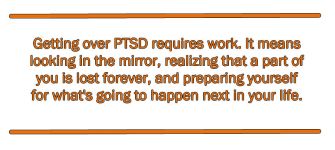Half of Everyone Will Experience Trauma. Here’s How to Grow From It.

Big Think and the Mental Health Channel are proud to launch Big Thinkers on Mental Health, a new series dedicated to open discussion of anxiety, depression, and the many other psychological disorders that affect millions worldwide.
The code of silence around wartime injuries that affect the mind is falling away. Veterans’ organizations campaign for mental health awareness and health care providers offer more mental health treatment than ever before. Many military officers now refer to post-traumatic stress disorder simply as PTS, eschewing its classification as a disorder in the first place.
That attitude is consistent with the findings of Dr. Rachel Yehuda, director of the Traumatic Stress Studies Division at Icahn School of Medicine and the Mental Health Patient Care Center director at the James J. Peters Veterans Affairs Medical Center.
Yehuda, one of the nation’s foremost trauma researchers, concludes that about half of all people will experience a traumatic event in their life, defined as “an event that divides your life into a before and after, a watershed moment that really kind of changes the way you view the world.”

Trauma doesn’t guarantee the onset of PTSD, but the condition does display the central theme of Yehuda’s work: that the hurdles in life presented by traumatic experiences, if treated properly, represent opportunities for momentous personal growth.
So what does PTSD treatment actually treat? The primary symptom of PTSD is a haunting memory of a past physiological experience. Sufferers often feel guilty for having caused the experience themselves, or assign blame to others out of anger for what happened.

PTSD has the power to ruin once-intimate relationships (like marriage) and make once peaceful environments (like being at work) fraught with emotional triggers. To be sure, these reactions are not the victims’ fault: Trauma is something that happens to someone. Treatment, however, cannot be imposed on a patient from the outside.
Getting over PTSD, as Yehuda explains, requires work. It means looking in the mirror, realizing that a part of you is lost forever, and preparing yourself for what’s going to happen next in your life. Medical professionals can help victims confront what happened to them, but they must be willing to face their past experiences frankly.
Once a patient commits to that, traumatic events represent an opportunity for tremendous personal growth in a way that is ultimately more liberating than traumatic.
Photo courtesy of iStock





